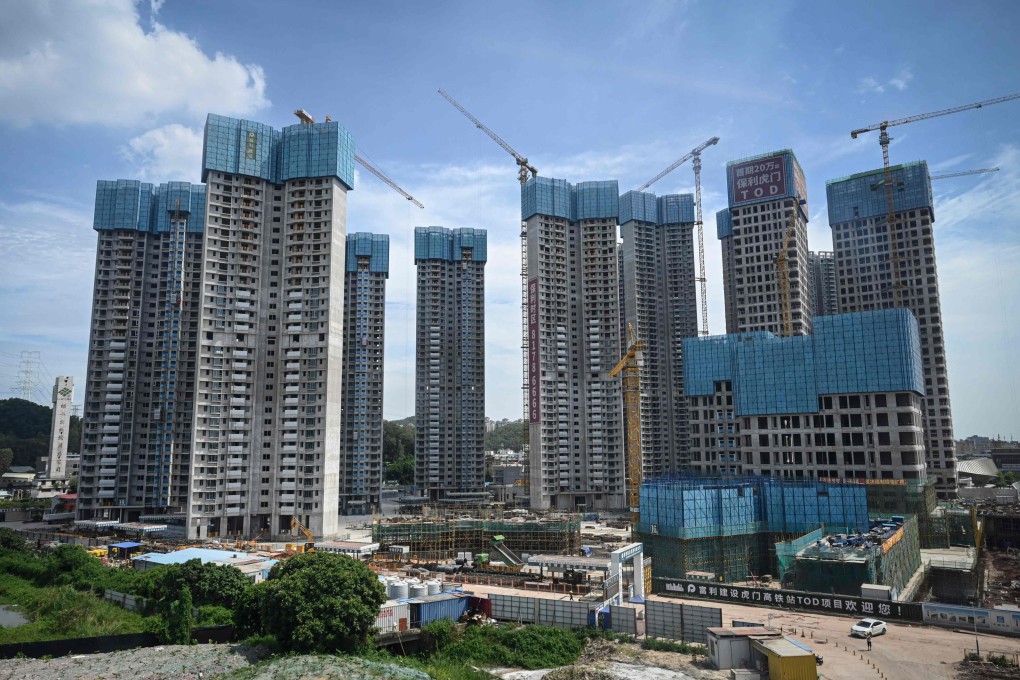Advertisement
China property crisis: plunging profits leave developers struggling to generate enough cash to service their loans
- Total cash on hand shrank by 13.8 per cent among 32 developers tracked by UOB, hurting their ability to service their debt
- Without supportive policy changes or a sudden shift in confidence in the market, more defaults are likely, analyst warns
Reading Time:3 minutes
Why you can trust SCMP
5

The debt crisis in China’s property industry is spiralling deeper into the abyss, as interim results from the country’s biggest developers showed most of them struggling to generate enough cash to service their loans amid a slowing economy.
Private property enterprises, left to their own devices without the financial backing of the state, are bearing the brunt. Their average net profit plunged by 188 per cent in the first six months of 2022, according to a report by Singapore’s United Overseas Bank (UOB) that tracks 32 listed developers.
State-owned developers fared better, with their profit dropping by 27 per cent compared with a year ago.
Advertisement
The cash crunch was seen across the board. The total cash on hand shrank by 13.8 per cent among the 32 developers, hurting their ability to service their debt, UOB said. CR Land, a unit of one of China’s largest state-owned conglomerates, China Resources Group, was the only developer to report an increase in cash.
“It is a tough overall situation right now. The developers have much less cash to pay their debt, and are unable to get financing offshore and onshore,” said Raymond Cheng, property analyst at CGS-CIMB Securities.
Advertisement
Without supportive policy changes from central government or a sudden shift in confidence in the property market that leads to sales, more developers are likely to default in the near future, according to Cheng.
Advertisement
Select Voice
Select Speed
1.00x